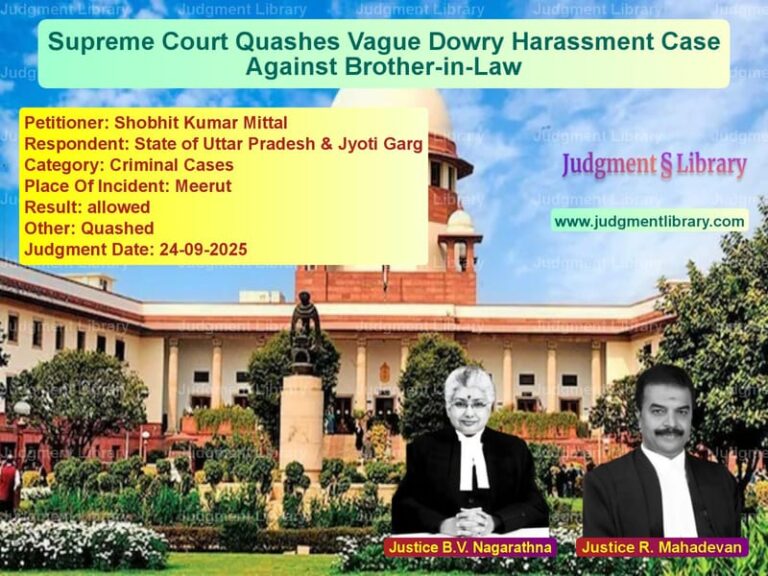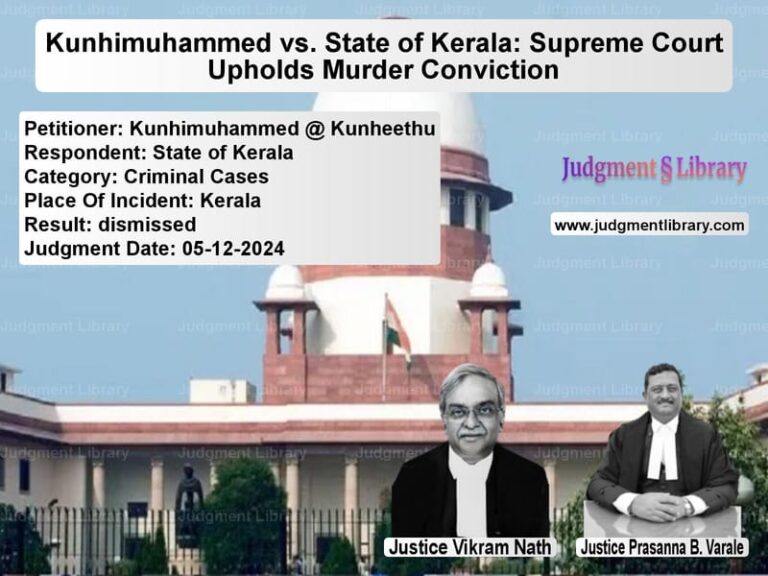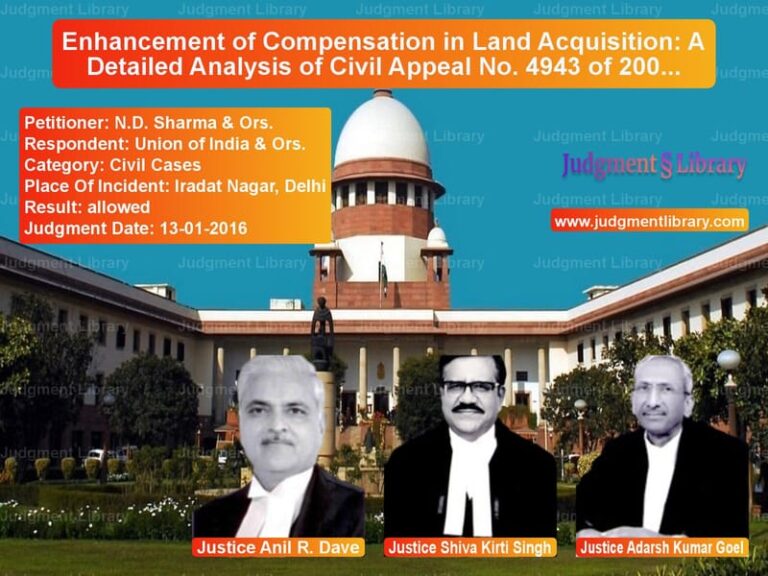Judicial Officers Dismissal Case: Supreme Court Rules on Disciplinary Action
The case of Hari Niwas Gupta vs. State of Bihar & Anr. involved the dismissal of three judicial officers in Bihar following allegations of misconduct. The Supreme Court had to determine whether their dismissal without an inquiry was justified under Article 311(2)(b) of the Indian Constitution, which allows for termination of government employees without a disciplinary inquiry in exceptional circumstances.
The case raises critical questions about judicial accountability, procedural fairness in dismissals, and the limits of executive power in dealing with allegations against judicial officers.
Background of the Case
Three judicial officers—Hari Niwas Gupta (Principal Judge, Family Court, Samastipur), Komal Ram (Chief Judicial Magistrate, Araria), and Jitendra Nath Singh (Ad-hoc Additional District & Sessions Judge, Araria)—were dismissed from service following allegations of inappropriate conduct during a visit to Nepal.
On January 29, 2013, a local newspaper reported that Nepal Police had apprehended these judicial officers on January 26, 2013, for allegedly being in a compromising position with women in a guest house in Biratnagar, Nepal. The report claimed that they were released after political and bureaucratic intervention. Based on these allegations, the Patna High Court initiated an inquiry.
Petitioner’s Arguments (Dismissed Judicial Officers)
The dismissed judicial officers contended:
- The news report was false, and no official action had been taken by Nepal authorities.
- They never left India during the period in question.
- The Patna High Court failed to conduct a proper inquiry before recommending dismissal.
- The dismissal violated their right to a fair hearing under Article 311(2) of the Constitution.
- The use of Article 311(2)(b) was arbitrary since there was no reason why an inquiry was ‘not reasonably practicable.’
Respondent’s Arguments (State of Bihar & Patna High Court)
The State of Bihar and the Patna High Court countered:
- The Nepal Police incident was credible and raised serious doubts about the officers’ conduct.
- Mobile phone records placed all three officers near Nepal’s border during the relevant period.
- One officer attempted to falsify hotel records to create an alibi.
- Their continued presence in the judiciary could undermine public trust in the legal system.
- Their dismissal was necessary to uphold judicial integrity, and an inquiry was impractical due to the sensitivity of the allegations.
Supreme Court’s Judgment
The Supreme Court dismissed the appeals of the judicial officers and upheld the Patna High Court’s decision. The key findings were:
- The requirement to record reasons for dispensing with an inquiry under Article 311(2)(b) had not been met at the time of dismissal.
- However, since the High Court later recorded reasons and recommended dismissal again, the procedural defect was cured.
- The allegations against the judicial officers were serious enough to justify dismissal without inquiry.
- The protection under Article 311(2) does not extend to cases where an inquiry is not reasonably practicable.
- The High Court’s control over the subordinate judiciary (under Article 235) gave it the authority to recommend dismissal in exceptional cases.
The Court stated:
“The requirement of recording reasons is mandatory, but a failure to record reasons initially does not make the dismissal illegal if the defect is subsequently cured.”
Key Takeaways
- Judicial officers can be dismissed without an inquiry if the competent authority records valid reasons.
- Article 311(2)(b) requires reasons to be recorded, but subsequent correction of procedural errors does not invalidate dismissal.
- The High Court has supervisory control over judicial officers and can recommend dismissal for misconduct.
- Government employees facing serious allegations cannot demand an inquiry as a matter of right if circumstances make it impractical.
- The judgment reinforces the principle that judicial integrity must be upheld, even at the cost of individual careers.
The Supreme Court’s ruling clarifies the balance between protecting government employees’ rights and ensuring accountability in the judiciary.
Petitioner Name: Hari Niwas Gupta & Ors..Respondent Name: State of Bihar & Anr..Judgment By: Justice Sanjiv Khanna, Justice Indu Malhotra.Place Of Incident: Bihar.Judgment Date: 08-11-2019.
Don’t miss out on the full details! Download the complete judgment in PDF format below and gain valuable insights instantly!
Download Judgment: Hari Niwas Gupta & O vs State of Bihar & Anr Supreme Court of India Judgment Dated 08-11-2019.pdf
Direct Downlaod Judgment: Direct downlaod this Judgment
See all petitions in Termination Cases
See all petitions in Public Sector Employees
See all petitions in Disciplinary Proceedings
See all petitions in Judgment by Sanjiv Khanna
See all petitions in Judgment by Indu Malhotra
See all petitions in dismissed
See all petitions in supreme court of India judgments November 2019
See all petitions in 2019 judgments
See all posts in Service Matters Category
See all allowed petitions in Service Matters Category
See all Dismissed petitions in Service Matters Category
See all partially allowed petitions in Service Matters Category







